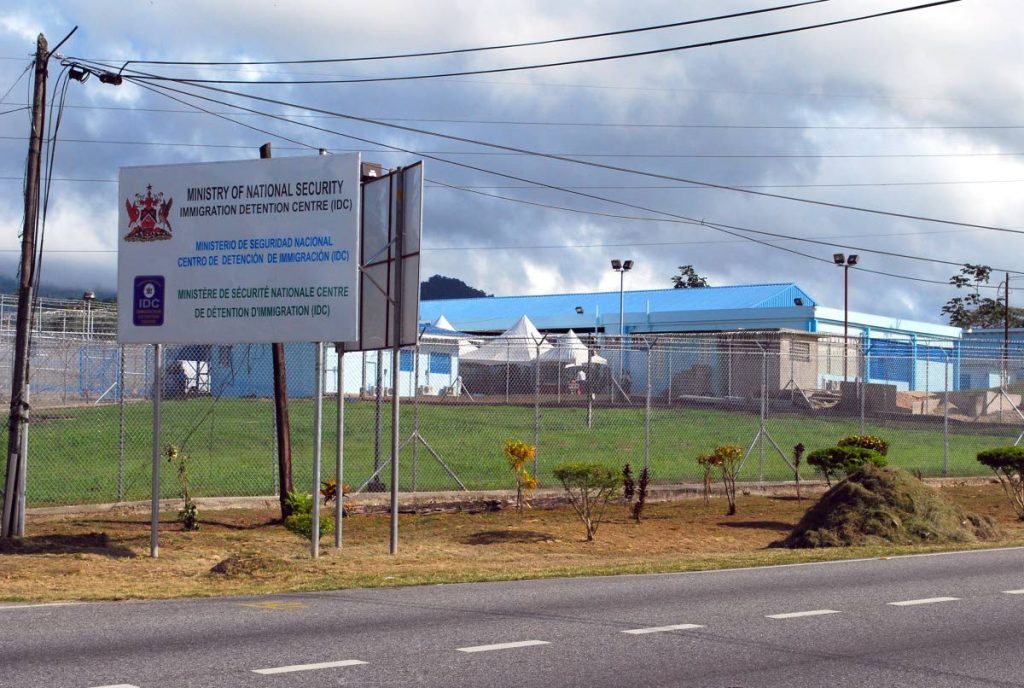Remember our history as an island of refugees

Sometime in the dry season 8,000 years ago, a young woman paddling a primitive canoe landed ashore on an island riverbank after paddling upstream to escape the possible predators more likely to attack near the mouth of the river. In the canoe was a young man with a spear and a quiver full of arrows. Slung over his back was a bow. At his feet were two sleepy children.
They were from a tribe called by a name that just meant The People. They were refugees fleeing persecution on the mainland.
They were to be the first settlers on the island that many centuries later would be named Trinidad by another set of refugees seeking shelter.
It doesn’t matter what they were seeking shelter from: drought, starvation, war, religious persecution. Sometimes it was just hope that brought them. Hope for a better life than what they were fleeing. They came in waves.
There were the Nepuyo, the Kallipuna, the Carinepogoto, the Taino, the Corlanders, the Spanish, the Warahoon, the Dutch, the French. They were Chinese, free and indentured; Africans, free and enslaved; East Indians, free and indentured; Portuguese, free and indentured; English and Irish, free and impounded. They were Syrian, Lebanese, Jewish, Roman Catholic, Hindu, Protestant, Christians, and Muslims both Shia and Sunni. They were Buddhist. They were non-religious freethinkers, all fleeing religious persecution and discrimination. It went on and on.
And then, as they all found at least some of what they hoped to find, they settled and mixed and mingled. As they did so they also met everyone’s ancient progenitors from “down the main.” If they didn’t originate there, they explored there, hunted and fished there, they fought there and traded there.
If those from down the main were not direct blood relations they were culturally part of the progenitors, the “cocoa panyols” who brought fame to TT worldwide for the superior quality of its cocoa, and along the way introduced Trinidad to cocoa tea, parang and pastelles.
We are richly blessed as a refugee culture composed of the erratic blend of something from each of the above mentioned waves of refugees. Perhaps because of our size, which enforced mingling with compatibility for survival, we were more fortunate than many others.
But we forgot. We forgot the fear, the uncertainty, the desperate search for accommodation that a man would feel for his family; for a wife with child without even a manger at hand. We forgot the need to be accepted, to feel safe in a way of life we are unused to.
So when refugees came in our own time, we were irritated.
Some came because they were persecuted for their religion or their politics. Some because of war, some because of volcanoes erupting, because drought or plague had forced then to seek survival elsewhere. We forget, when we see the Nigerian security guards or the Venezuelan shop assistants, that we all came from where they came from, metaphorically, if not geographically.
Reports come in daily now of Trinis whose ancestors were refugees exploiting the refugees of today. Paying under minimum wages for extraordinary hours of work on construction sites. Refusing the benefits given to your own religious congregation to refugees who come begging for help. Demanding sex services in addition to housework or bar, restaurant and shop work, then contemptuously calling the poor girls and young boys who acquiesce in providing the sex services “sluts” and "hos."
They are sacrificing their bodies, their dignity and their spirits to provide survival for their families. That takes the kind of heroism also seen in little girls sexually abused by male relatives who threaten to kill their mothers if they tell anyone. So, despite the pain inflicted on their young bodies, to protect their mothers the only way they know how, they submit.
We have no legislation that protects or supports refugees in TT – a country populated by the descendants of refugees. No labour laws that demand equal pay for refugees’ work of equal value; and there is an understanding that in the underground economy where the unregistered employment of most refugees takes place, no labour inspectorate operates. Overtime can be demanded but not paid for and no one dare complain.
No trade union, however fervently espousing human rights, will come to protest their exploitation. They will argue with arguable justification that they are paid by their members to take care of their members’ rights and interests, not those of refugees, economic or political or religious. And so they are.
No universality of education for small frightened children from down the main that arrive by boat. There is no medical help or coverage for those men and women warehoused together in something called the Immigration Detention Centre. Despite the crowding there is no social distancing as protection against "the virus" (covid19).
Well, we say, nobody asked them to come. But fleeing persecution or death is not a crime, and the majority there are not sent in for criminal acts other than not getting permission to land. Police are genuinely too busy stopping cars and asking drivers where they are going to see if space per person, cleanliness, safety and health factors mandated under the OSHA Act are being observed in the IDC.
As we transition into the predicted post-pandemic new society, are we going to deal with the realities of the lives of refugees?
We cannot escape those realities, not even by becoming economic refugees ourselves. There is nowhere unscarred or unaffected for us to go to. If we are looking for a more just society than we have now, we will have to make one ourselves.

Comments
"Remember our history as an island of refugees"